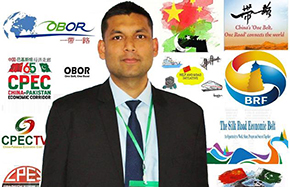A meeting of immense scope
To take just two examples, Washington and Beijing both oppose Pyongyang's nuclear program and both know that the future in the DPRK is uncertain. Yet the US and China have never agreed to discuss concretely the range of potential future scenarios on the Korean Peninsula and their implications. It is time to do so, and the summit should both approve such discussions and mandate that they include both diplomatic and military participants.
On climate change, Washington and Beijing should set aside debates over who bears the greatest responsibility for the current situation and instead focus on concrete, high impact projects and initiatives where the two can cooperate bilaterally and with other high-emission countries to mitigate a threat that confronts us all.
Developing better personal understanding of each other and making progress on how to deal with some major concerns would alone make the summit worthwhile. But there is also a possibility in California to go further.
Both leaders have said that they would like to lay the groundwork for "a new type of major power relations" where, in contrast to the 20th century, the relations between a rising power and the dominant power do not inexorably trend toward conflict. This informal summit provides a unique opportunity for the presidents to discuss candidly what this new concept should mean in practice.
In Beijing, Donilon said the two leaders should discuss the perceptions, interests and priorities guiding their respective approaches to bilateral, regional and global affairs. To be really valuable, this discussion should also specifically address areas in which deeper cooperation can yield disproportionate benefits, as well as candidly determine where fault lines will remain in place. This exchange should adopt a long-term perspective and lead to sustained, high-level dialogue on the core threats that will shape the world of the future - and the potential roles of the US and China separately and collaboratively in such a world.
It is in the context of this type of truly strategic discussion that cooperation on specific issues can lead to greater trust of each other's long-term intentions. The potential upside of this unprecedented US-China meeting is thus substantial if the two leaders are prepared to seize the moment - and if they are able to inspire confidence in each other.
The author is a senior fellow in foreign policy and in the John L. Thornton China Center, The Brookings Institution.

























